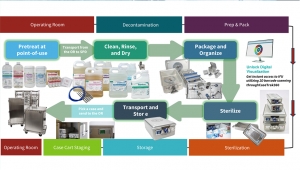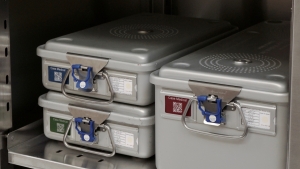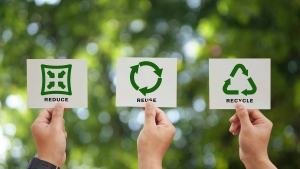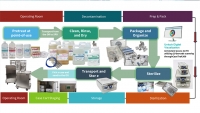Standardization: The Missing Link in OR–SPD Communication
This week at the OR Leadership Summit, Case Medical connected with OR leaders to explore what it truly takes to achieve smoother operations, clearer communication, and reliable compliance. When communication breaks down between the operating room and sterile processing, the symptoms are easy to spot—late trays, incomplete sets, urgent phone calls, and last-minute workarounds.
Driving Better Outcomes Through Healthcare Standardization
Standardization can improve productivity, reduce costs, and create supply chain efficiency. Healthcare facilities are looking at the Total Cost of Ownership to reduce waste and have what is needed in stock, even during challenging times and supply chain shortages.
Rigid Reusable Sterilization Containers, Universal and Guaranteed
Last week, we focused on how we manufacture truly reusable products and how we stand by our warranty to ensure that our products perform well for years to come. We understand that tracking medical devices is critical in healthcare settings for patent safety and asset management.
Redefining the supply chain of tomorrow for industry and healthcare
Case Medical is committed to continuous improvement and partners with local universities and community colleges to support their students with internships, and co-op opportunities. This partnership has served us well as we learn how AI and machine learning can be applied to our operations.
SteriTite, the sterilization container system with intelligence
Years ago, when we developed the SteriTite sealed container system, the healthcare industry was standardizing on wrapped plastic sterilization trays. They were light weight and came in a variety of colors with depressions that encapsulated an instrument. They looked nice for display purposes in industries like cosmetics, foodservice, and kitchenware.
Leave Flashing to Cameras: There is no need for IUSS with SteriTite
Flash sterilization in the 1990s and even early in this millennium was used to rapidly sterilize surgical instruments in emergency situations, when unexpected delays backed-up the OR, or if a critical instrument was dropped before surgery. It was a way to keep the OR on schedule without necessarily considering the options. At the time, gravity displacement steam was the method of choice used in the OR to sterilize instruments.
Why are equipment manufacturers reducing the rinse?
Shorter cycles, less rinses have been discussed for some time at AAMI working groups and amongst healthcare professionals. Most agree that adequate contact time and rinsing is good practice for manual and automated processes. Detergents lift but rinsing removes the soil. Now manufacturers of new washer/disinfectors have gone even further by promoting cycles preset in their new machines which eliminate rinse steps and rinse times
Prepare for the next supply chain crisis
By now you are likely aware of the supply chain crisis, global warming, and the challenges of the post pandemic world. All that we need now is a UPS strike, the cherry on top of a not so pleasant cake. At Case Medical we share your concerns, and we’re here to help. As a manufacturer of medical devices and products for instrument processing, we know that if we don’t have the necessary...
Reduce, Reuse, Recycle
At Case Medical, we support the principles of reduce, reuse, and recycle. When done right, these practices can help healthcare facilities create less waste and save money. Doing it right means considering the three Rs in order: first reduce consumption of single use items, then make sure that what you buy is reusable for as long as possible, then recycle what’s left to avoid disposing of it in a landfill...
Take a ride down the technology superhighway with Case Medical
When budgets are tight, people sometimes look for quick fixes to save on immediate costs. Unfortunately, they will end up being sorry if what looks like a less expensive product costs more in the long run...














